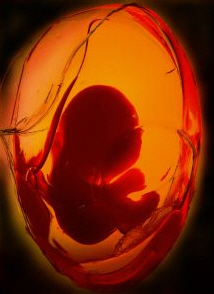 Globally, infertility rates have not changed in the past two decades.
Globally, infertility rates have not changed in the past two decades.
New research studies show that in 2010, 48.5 million couples around the world were unable to have a child after five years of trying. Infertility rates have hardly changed over the past 20 years, according to a study by international researchers published in a recent PLOS Medicine. (1)
In an analysis of 277 national surveys, the authors, led by Gretchen Stevens from the World Health Organization, estimated the levels and trends of infertility in 190 countries from 1990 to 2010. And this is what they said:
“We analyzed demographic and reproductive household survey data to reveal global patterns and trends in infertility. Independent from population growth and worldwide declines in the preferred number of children, we found little evidence of changes in infertility over two decades, apart from in the regions of Sub-Saharan Africa and South Asia. Further research is needed to identify the etiological causes of these patterns and trends.” (1)
The USA Today reports, “rising obesity will cost US health care $344 billion a year.” (2)
The health burdens and chronic diseases associated with obesity are certainly well-documented. (2,3,4)
We know about the diabetes, cardiovascular disease, and hypertension, for example. But while the problems with obesity and infertility are also documented in the medical literature, they aren’t as well known to the general public.
Infertility caused by obesity reduces the ability of both men and women to conceive a child spontaneously or without medical intervention.(5)
The rates of US citizens who are overweight and obese are rising. So are the infertility rates. They do not always correlate completely, but obesity and infertility appear to be linked. What’s more, the risk of infertility caused by obesity doesn’t end at conception. Studies show women who suffer from obesity also had adverse effects after conception. These adverse effects are to both the mother and baby.(6)
“Fertility can be negatively affected by obesity. Much more attention should be paid to the impact of obesity on fertility in both women and men.” (7)
Tomorrow, we will delve a little deeper into this topic.
References:
(1) http://www.plosmedicine.org/article/info%3Adoi%2F10.1371%2Fjournal.pmed.1001356
(2) http://www.usatoday.com/news/health/weightloss/2009-11-17-future-obesity-costs_N.htm
(3) http://www.medicalnewstoday.com/articles/158948.php
(4) http://abcnews.go.com/Health/Healthday/story?id=8184975&page=1#.T-EGnpErZEM
(5) http://abcnews.go.com/Health/Healthday/story?id=8184975&page=1#.T-EGnpErZEM
(6) http://www.marchofdimes.com/pregnancy/complications_obesity.html
(7) http://www.ncbi.nlm.nih.gov/pubmed/17982356

One Response to Infertility and Obesity: Is There a Connection?